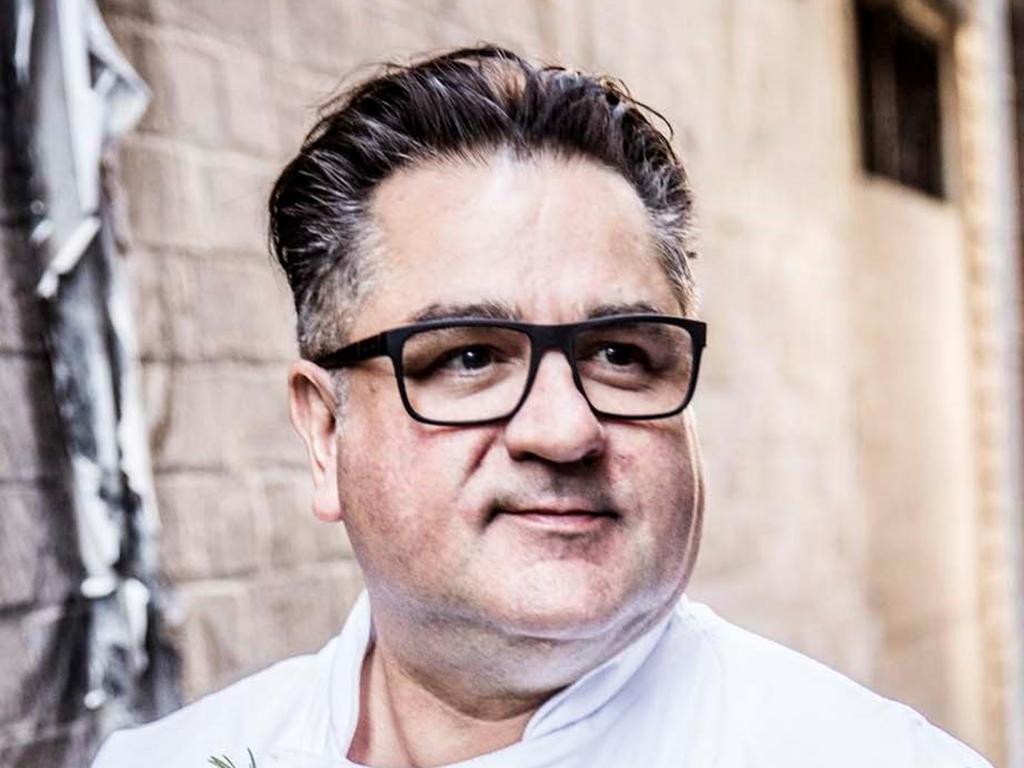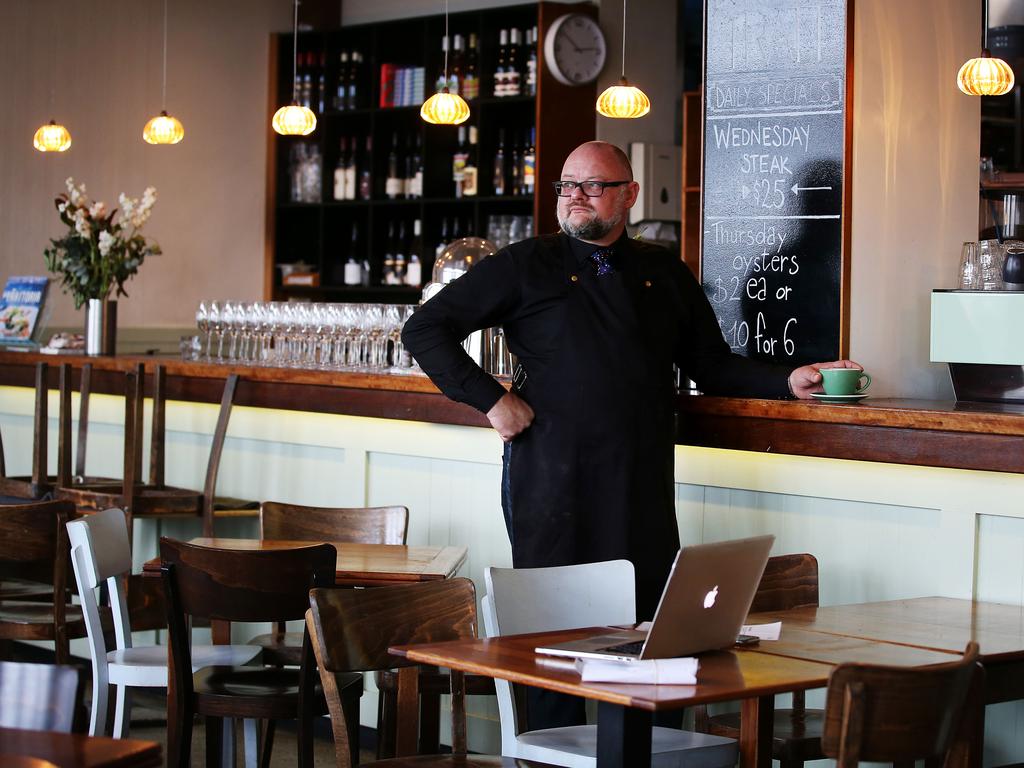JobSeeker for bar and restaurant staff won’t stop industry reset
Lockdowns will force a ‘cleansing’ in Victoria that has been a long time coming — and is in part of its own making.
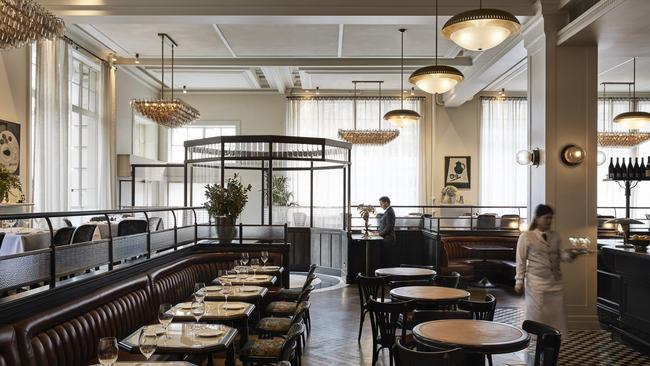
It was April 2017 and the city was crawling with names, names, names darling. Well, names if you happen to be a food tragic. With more than a little help from Tourism Australia, the World’s 50 Best Restaurants Awards ceremony, hitherto sole property of London and New York and a circus of some considerable bulk, had come to Melbourne, and so had most of the restaurant industry’s brightest stars. The most creative, most daring, most revered — most expensive.
Your Redzepis, your Changs, your Blumenthals. They mingled with local culinary glitterati such as Ben Shewry of Attica and Dan Hunter of Brae: both Victorians, and the only Australian chefs recognised by the prestigious — if controversial — 50 Best list.
Melbourne was having a moment.
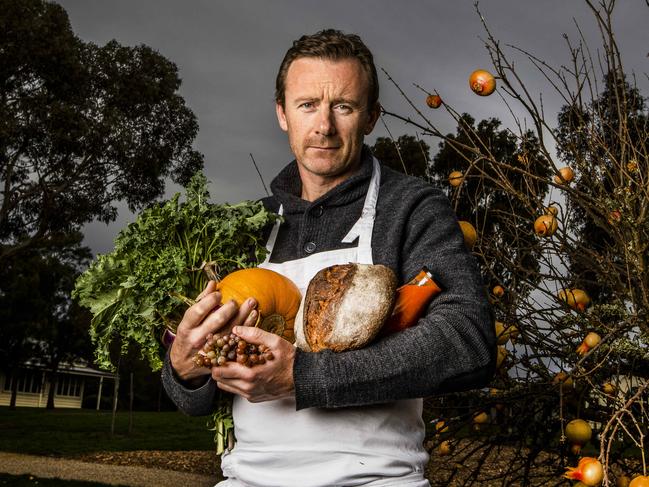
Its longstanding claim to the throne of food capital of the country had finally been validated, and the eyes of the culinary world settled briefly on the Victorian capital. As a restaurant and food-wine city, it was the zenith.
But can the city’s rich tapestry of markets and cafes, restaurants and roasters, ethnic specialists and craft brewers ever bounce back from lockdowns one and two, and the radical worldwide economic trickle down of COVID-19?
What will the city’s hitherto envied foodscape look like when the stage three lockdown ends on August 17 and businesses again try to pick up the pieces from a trading interruption that, by then, will have lasted almost five months? And that’s if the lockdown even ends on August 17; it can’t be guaranteed. Melbourne restaurant veterans are predicting serious attrition from their ranks and a new pragmatism that, in many cases, will mean low-service models and dumbed-down menus will prevail for those who want to survive. “What saddens me,” says one of the city’s most influential restaurateurs, Con Christopoulos, “is that we can no longer dream.”
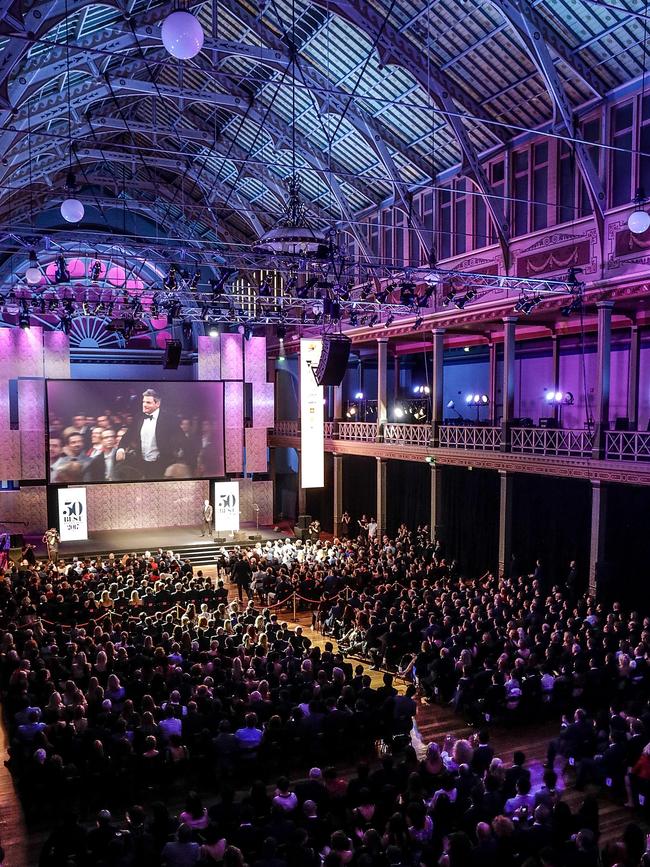
The COVID-induced industry shutdown has been an inconvenient catalyst for self-examination, according to many spoken to by The Australian. “What people don’t realise is that the industry was on its knees before Christmas,” says restaurateur Matteo Pignatelli, a former national president of Restaurant and Catering Australia. “There was a culture that needed to change.”
According to Pignatelli, a series of industry underpayment scandals had exposed exploitation; a lot of employers, he says, had responded and started paying correctly only to realise they “simply couldn’t make money like that”.
A veteran of the game after 26 years at his own place in North Fitzroy, Pignatelli says the consecutive shutdowns this year will cause a “significant correction”.
“This is going to be a good excuse for a lot of businesses to shut their doors,” he says. “We’ll lose a lot of good businesses.”
He says 20 per cent of Melbourne’s restaurants will not re-open, some will see out the end of JobKeeper and then close while others will be sustained temporarily by the seasonal spike in spring and pre-Christmas demand. “And then a lot of places won’t reopen in January.”
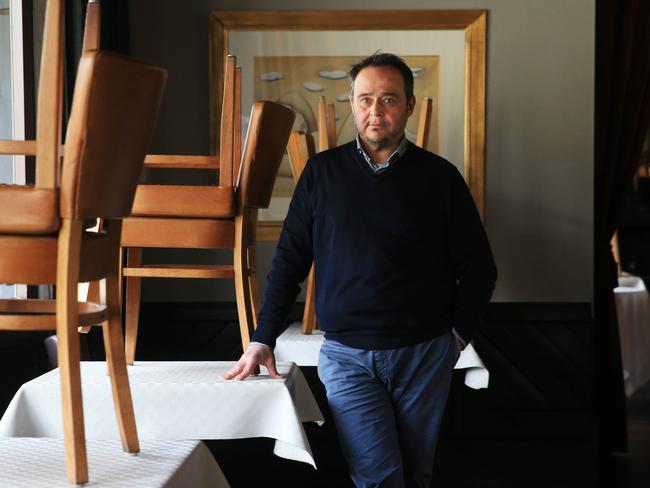
Pignatelli is particularly cynical about Tuesday’s JobKeeper extensions. “It will allow businesses that should close to stay open,” he says. “(It’s) a false economy, prolonging the inevitable and keeping talent in a dead-end job.”
In the restaurateur’s opinion, Melbourne can look forward to restaurants operated by big companies, and small operators, but not much between. He says there will be a lot of cafes closed, a “dumbing down” of food and general “playing it safe”. He also foresees less investment in training “and it was bad as it was”.
“Why would you put on an apprentice? It costs more than putting on a qualified chef.”
If Pignatelli is cautious, Christopoulos is positively pessimistic. With a hub of enduring food and wine businesses in Spring Street built around the European, and still more across the greater CBD, Christopoulos is widely acknowledged as one of the true architects of Melbourne’s food scene.
“I’m not angry any more,” the bellwether bar, cafe and wine venue operator says.
“Most of my places haven’t opened, some won’t open again and if they do they won’t be the same. The landscape’s changed. Relationships, aspirations, for me there’s no more room for romance and passion, which is sad.”
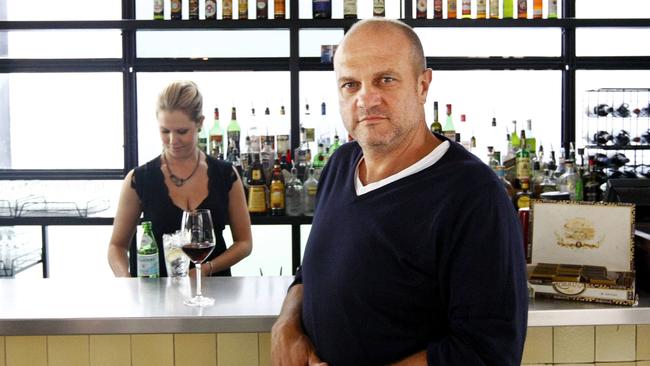
Basically, Christopoulos says, Melbourne’s restaurant industry has been in trouble for years and COVID has simply brought into focus a lot of issues around industrial relations and the thorny subject of penalty rates. From now on, he says, it is only about pragmatism and low-service models. The restaurateur says his only food business that makes money is Butchers Diner, where you pay at the counter and pick up your meal when it’s ready. It’s how he sees things going for his other restaurants in the future.
“There’s no money in food, and it’s our fault as much as anyone’s. You’ve got restaurants doing the right thing, running on no profit, competing with others not doing the right thing … You can’t charge enough for quality. You can’t have good food and good service at a reasonable price in this country.
“I’ve tried everything; my barometer is out there. Those that are making a difference are doing it from the heart and naivety, but the fact is they are not making money. COVID has simply forced us to have a closer look and it’s why people like John Van Haandel (who recently sold Sydney’s Longrain restaurant) are getting out.”
Christopoulos says his wages have gone from 35 per cent 10 years ago to 50 per cent.
“It’s no longer a business model, it’s a maybe … And unless you’ve got a good relationship with your landlord, your bank and your staff, you’re gone,” he says. “I’m confident I have enough acumen to get through this. What saddens me is that we can no longer dream.”
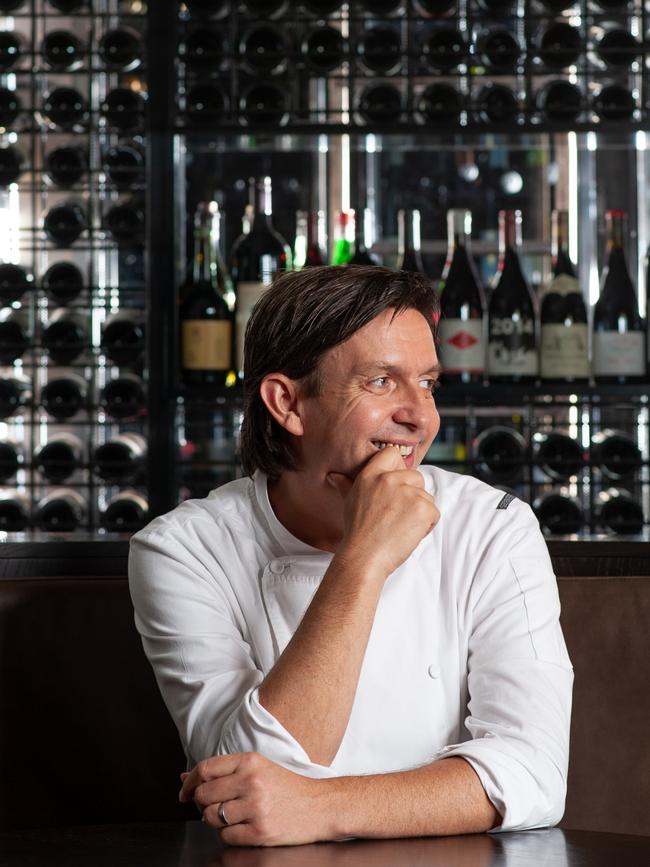
Prominent chef and restaurateur Andrew McConnell, whose Trader House group comprises seven restaurants and two butchers shops, believes an extension of JobKeeper for his industry is the only way to prevent carnage in the industry. “I think a lot of businesses are close to the edge,” says McConnell, who opened his latest restaurant, Gimlet, five weeks ago as lockdown one ended, only to have to close it again last week as the new lockdown came into place in Greater Melbourne.
“Without the extension to JobKeeper (this week) the industry would have been decimated.”
A chef by trade who now employs 350 at full tilt, McConnell says even when restrictions lift August 17, there will be a new problem to tackle.
“It’s one thing being allowed to trade, even if it is with just 20 people, but consumer confidence is quite another. That will set us back … And we can’t be so arrogant as to think it (COVID) is going to go away forever.”
Melbourne’s annual Food and Wine Festival is a 27-year tradition, the significance of which is difficult for outsiders to appreciate.
“We champion the food and drink of Victoria, that’s our role,” says Anthea Loucas Bosha, chief executive of Melbourne Food and Wine. “To be robbed of the festival six days before it was due to begin was heartbreaking, devastating. But without wishing to diminish the significance of the first lockdown in any way, it did feel a bit like a novelty. “There was an ‘other side’, a road map and path. This feels more uncertain and that’s what’s very difficult for the industry to navigate, and I do worry.”
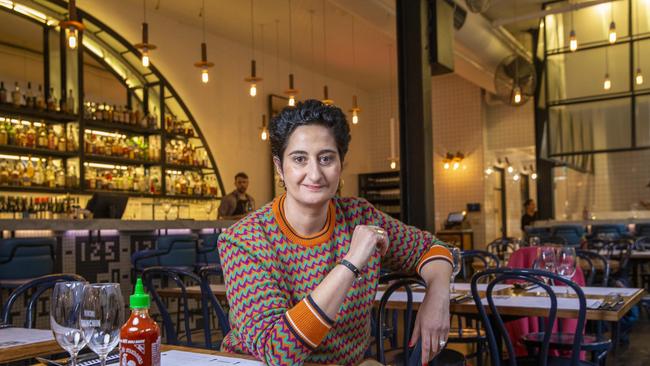
The prediction of 25 per cent to 30 per cent permanent closure “is very real”, she says.
“The tragedy is probably that the younger, greener operators are the most vulnerable. The younger players have only seen boom times.” Having lived in Sydney 20 years, Loucas Bosha says it’s seeing the central business district so quiet that is most disturbing.
“The CBD of Melbourne is so vibrant with cafes and restaurants in a way Sydney just isn’t,” she says. “But they had been running at a third the pace. There’s actually no custom … The fear is what it’s like on the other side.”
MFW had endured a “triple whammy” of vulnerable industries, she says: events and festivals, food and tourism.
Pignatelli speaks with the confidence of someone who knows he will reopen post lockdown. The unique, multi-room floorplan of his restaurant meant that even under restricted numbers he could still legally serve 70 and, revenue-wise, last month was his best June in 26 years. He can see a positive to the crisis. “There are going to be fewer employers but still a lot of talented employees around,” he says. “It’s so easy for a chef to open a restaurant … A lot of them will have closed and they’re going to be looking for jobs. The cream will rise, and the standard of restaurants overall should eventually rise too.”
Unfortunately for the once so vibrant Melbourne food scene, what’s bubbling away under the surface right now is, in Pignatelli’s words, “a cleansing and culture reset of the industry” the likes of which we have never seen.
Most restaurants, bars and cafes will reopen and return to normal, he says. It’s just a matter now of how many won’t.

